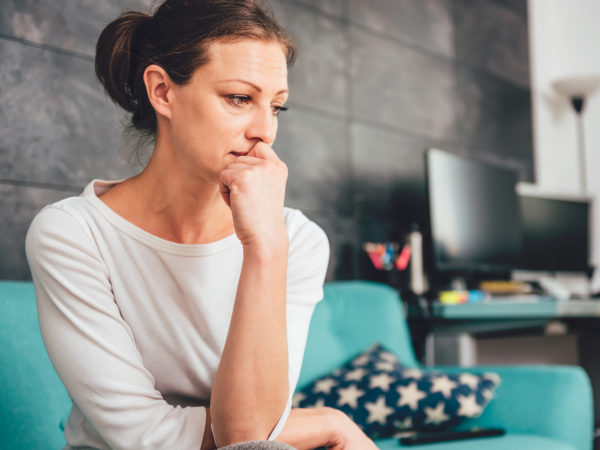Can Low Blood Sugar Cause Anxiety?
I suffer from anxiety. I also have hypoglycemia. My doctor suggested that the anxiety might stem from low blood sugar levels. Can this be true?
Andrew Weil, M.D. | June 26, 2018

Possibly. Hypoglycemia – low blood sugar – can occur in people who have diabetes when they dose insulin out of proportion with eating, miss a meal, or exercise harder than usual. A number of other (mostly rare) conditions can also be responsible. It can trigger a constellation of symptoms, including shakiness, changes in consciousness, headache, irritability, hunger, fatigue, and pale skin. Although hypoglycemia can cause anxiety, this probably occurs less frequently than many of the other symptoms, which can vary from person to person. Some people don’t feel any different when their blood sugar drops.d
If you are prone to hypoglycemia, I assume you know what to do if you develop symptoms. First, check your blood glucose level and, if it is below your target or less than 70 milligrams per deciliter (mg/dL), immediately eat or drink 15 grams of carbohydrates: a half cup of fruit juice, two tablespoons of raisins, a tablespoon of sugar or honey or glucose tablets.
Anxiety is a normal reaction to certain situations, such as feeling tense when speaking in front of a large group or experiencing a racing heartbeat when faced with a dangerous situation. This physiological response helps prepare you to react to a threat or charges you up to perform well when faced with a challenge. Chronic anxiety, on the other hand, may indicate an anxiety disorder. There are several types:
- Posttraumatic stress
- Obsessive-compulsive disorder
- Panic disorder
- Generalized anxiety disorder
- Phobia
Anxiety disorders are more common in women and tend to run in families. Those affected often fret excessively about certain people or situations, their health or their job, although the source of worry is not always evident. These conditions are true illnesses, stemming from a combination of life experiences and biological factors. People affected may feel anxious all of the time without any apparent reason, have such extreme feelings of anxiety that they have to avoid certain everyday activities, or may become completely immobilized.
Anxiety can also manifest as physical symptoms including muscle tension, headaches, trembling, restlessness, sweating, abdominal upsets, dizziness and irritability.
A number of lifestyle changes may help you deal with anxiety. Chief among them are practicing breathing exercises, the most effective and fastest-acting method I know, particularly the relaxing breath I recommend. Even simply focusing your attention on your breathing, without doing anything to change it, can help. Aerobic exercise can also be useful; – one of its benefits is its moderating effect on emotions. I also recommend avoiding caffeine (from all sources), because its stimulating effects can heighten anxiety. Other worthwhile measures include:
- Cognitive behavioral therapy (CBT)
- Journaling or journal writing
- A news fast – avoid the daily onslaught of (mostly bad) news, especially on television and online.
Andrew Weil, M.D.
Sources:
niddk.nih.gov/health-information/diabetes/overview/preventing-problems/low-blood-glucose-hypoglycemia
mayoclinic.org/diseases-conditions/diabetes/expert-answers/reactive-hypoglycemia/faq-20057778
ncbi.nlm.nih.gov/pmc/articles/PMC4963565/











